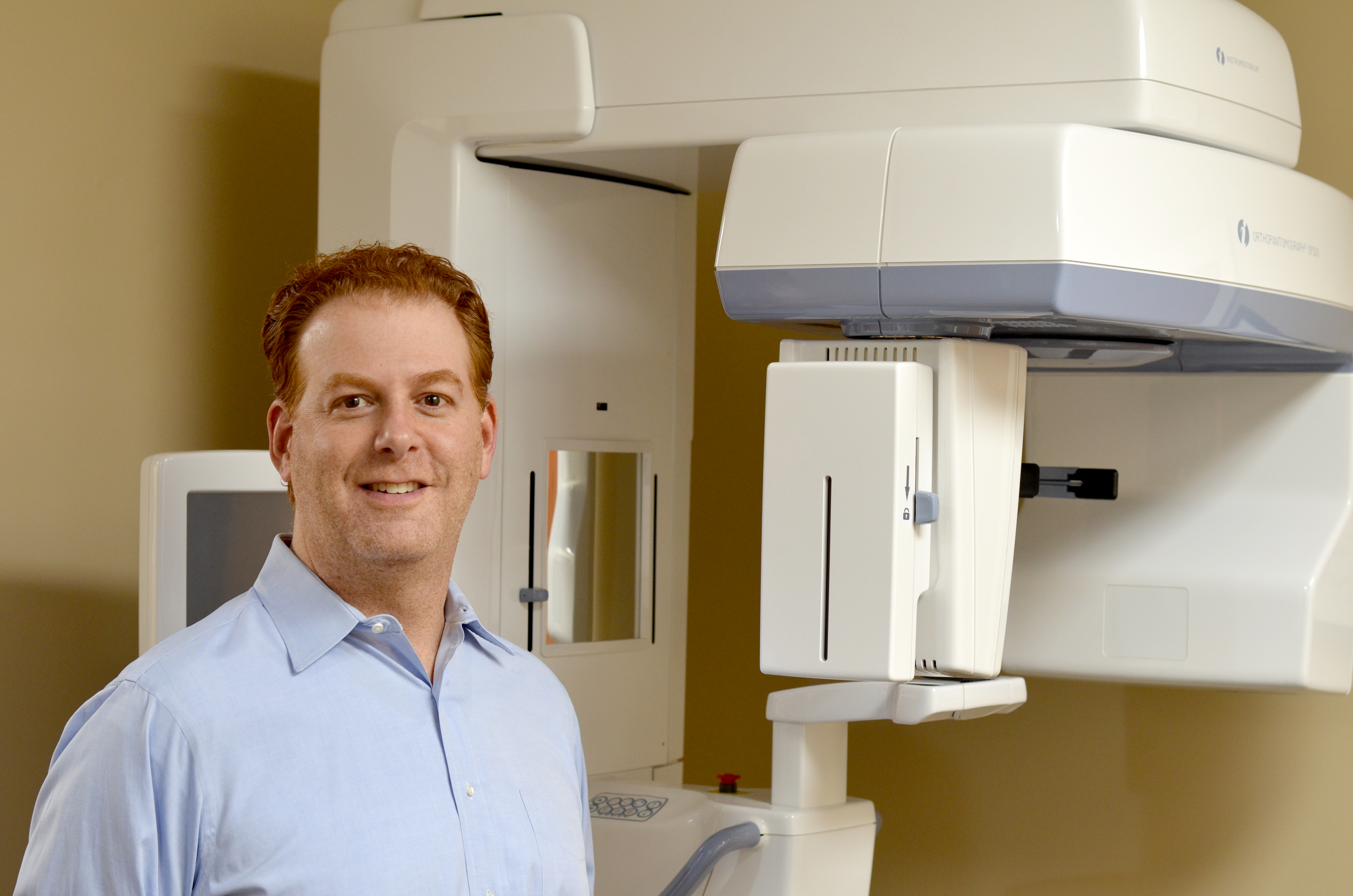
What is a periodontist? Do I need to see one?
A periodontist specializes in the diagnosis, treatment and prevention of periodontal disease, as well as dental implant placement. Periodontists have completed 4 years of dental school and have received an additional 3 years of training to obtain the necessary education to perform procedures in periodontics. Your general dentist may refer you to a periodontist if you exhibit the symptoms of gum disease or need a dental implant; however, you may schedule an appointment on your own if you have concerns about your oral health.
What is periodontal disease, and am I at risk of developing it?
The term “periodontal” simply means “around the tooth.” Periodontal disease affects the gums and bones supporting the teeth. Also known as gum disease, periodontal disease or “gum disease” often is attributed to the bacteria in dental plaque, which causes the gums to become inflamed and infected. Other factors, such as smoking or tobacco use, poor nutrition, stress or pregnancy, may put you at risk of developing gum disease.
Is periodontal disease contagious?
Although it is not an airborne disease, research has indicated that the bacteria that causes gum disease can be passed through saliva. Therefore, families and couples who may be in close contact with a person with gum disease are also at risk. We recommend being screened for periodontal disease regularly if you are potentially at risk, particularly if you have a family history of periodontal disease or tooth loss.
My gums bleed when I brush my teeth. Is this normal?
Healthy gums should not bleed when you brush your teeth. This is one of the early signs of gum disease. You should schedule an appointment with your periodontist for a complete periodontal screening.
Are there ways to prevent periodontal disease?
A good oral hygiene regimen is imperative in preventing periodontal disease. Proper brushing and flossing, in conjunction with regular dental visits for professional cleaning twice a year, will help keep your smile healthy for life. If you have periodontal disease that is treated, research clearly demonstrates that professional cleanings should be performed every 3 months to maintain disease stability.
Are dental implants the best restoration option?
Your periodontist can determine if dental implants are the best restoration option for your individual case. Dental implants have a natural look and feel and can help prevent shifting of surrounding teeth. Implants are often preferred to bridges and dentures because they are more secure. The average life span of a bridge has been shown to be between 7 to 10 years. Dental implants have been shown to last much longer than a bridge and in many instances will last a life time.
If I have periodontal disease, do I need surgery? What are my options?
Whether you need surgery or not will depend on how advanced your periodontal disease is. There are non-surgical treatments, such as root scaling and planing available, for those with mild gum disease. If you are in the advanced stages of gum disease, you may benefit from having surgery. With the latest technology and advanced techniques available today, many surgical procedures can be performed in an office setting with little discomfort.
What is maintenance therapy?
Maintenance therapy is used to help prevent further infection from occurring in patients who have already received periodontal treatment. Your periodontist will tailor a program to fit your needs, which will include periodontal checkups, plaque and tartar removal and sometimes polishing your teeth or checking your bite. The frequency of visits varies from case to case from every few weeks to four times per year.
In advance cases, that have not reached stability, we suggest that you continue to see us for all maintenance visits. Once we are certain that you have reached a steady state of health, we will ask you to see both your general dentist and us, on an alternating basis, to best preserve an optimal result. Research has proven to us that this is the best treatment for our patients.
I have a “gummy” smile. What can be done to correct this?
A procedure called aesthetic crown enhancement can correct “gummy” smiles. “Gummy” smiles make teeth appear too short because either the gum and/or supporting bone did not passively reposition lower around the tooth after its eruption into the mouth. With aesthetic crown enhancement, the gums and supporting tissues are reshaped/repositioned to expose the natural length and form of the tooth.
My gums are receding and my teeth appear “long.” Can this be fixed?
If left untreated, gum recession can lead to tooth loss. Gum recession can be a sign of serious bone recession. Soft tissue grafts can fix this condition and also prevent further recession or bone loss. In the procedure, gum tissue can be taken from your palate or another donor source. This tissue is then placed over the exposed roots, which helps to even out the gum line and reduce sensitivity to hot and cold temperatures.
For more information, please visit the American Academy of Periodontology.
“My experience here has been wonderful! I’m usually scared of dental work. Dr. Diamond made it as painless as possible. Thanks so much! I recommend everyone!”
J.L, Willow Grove